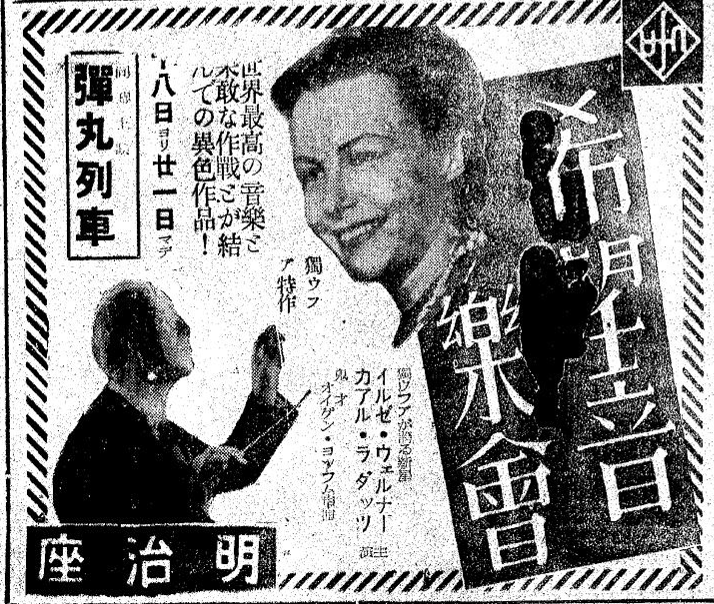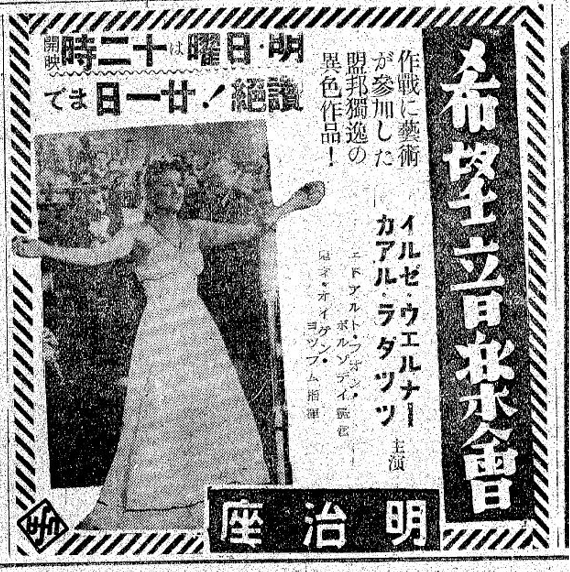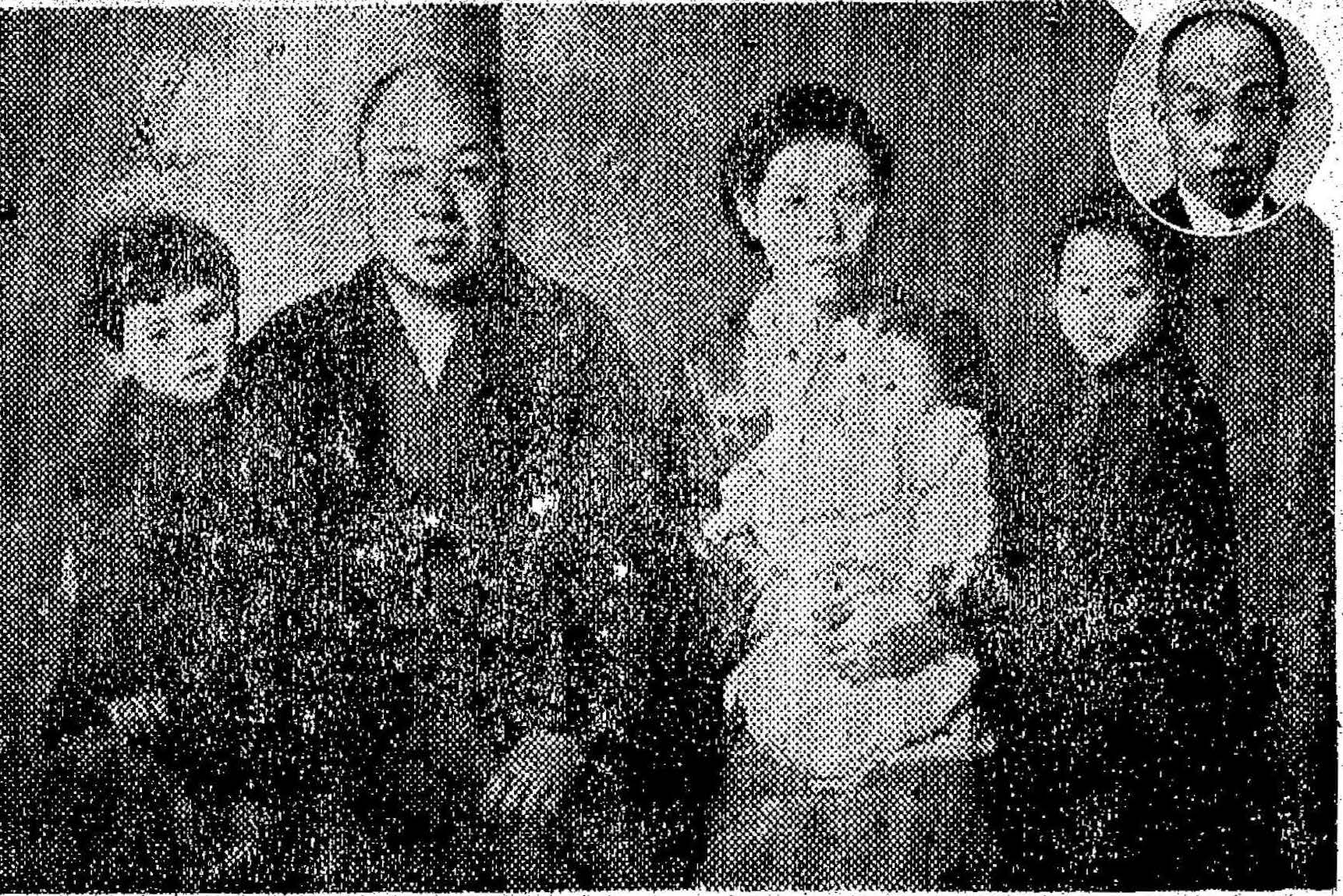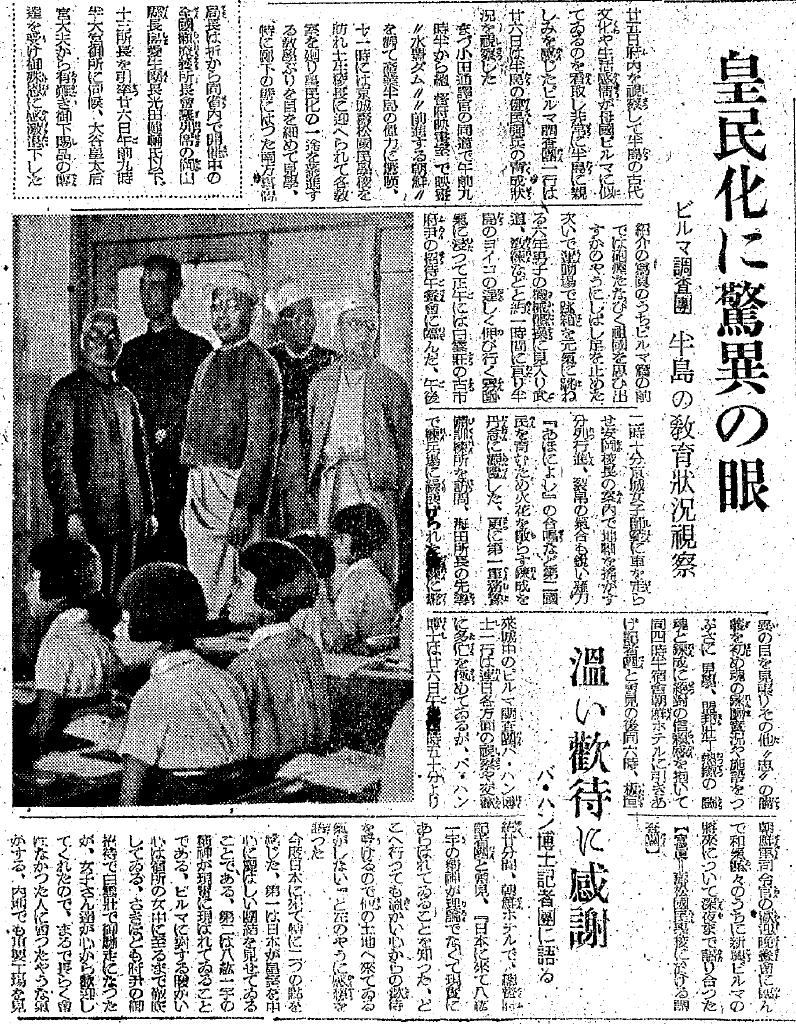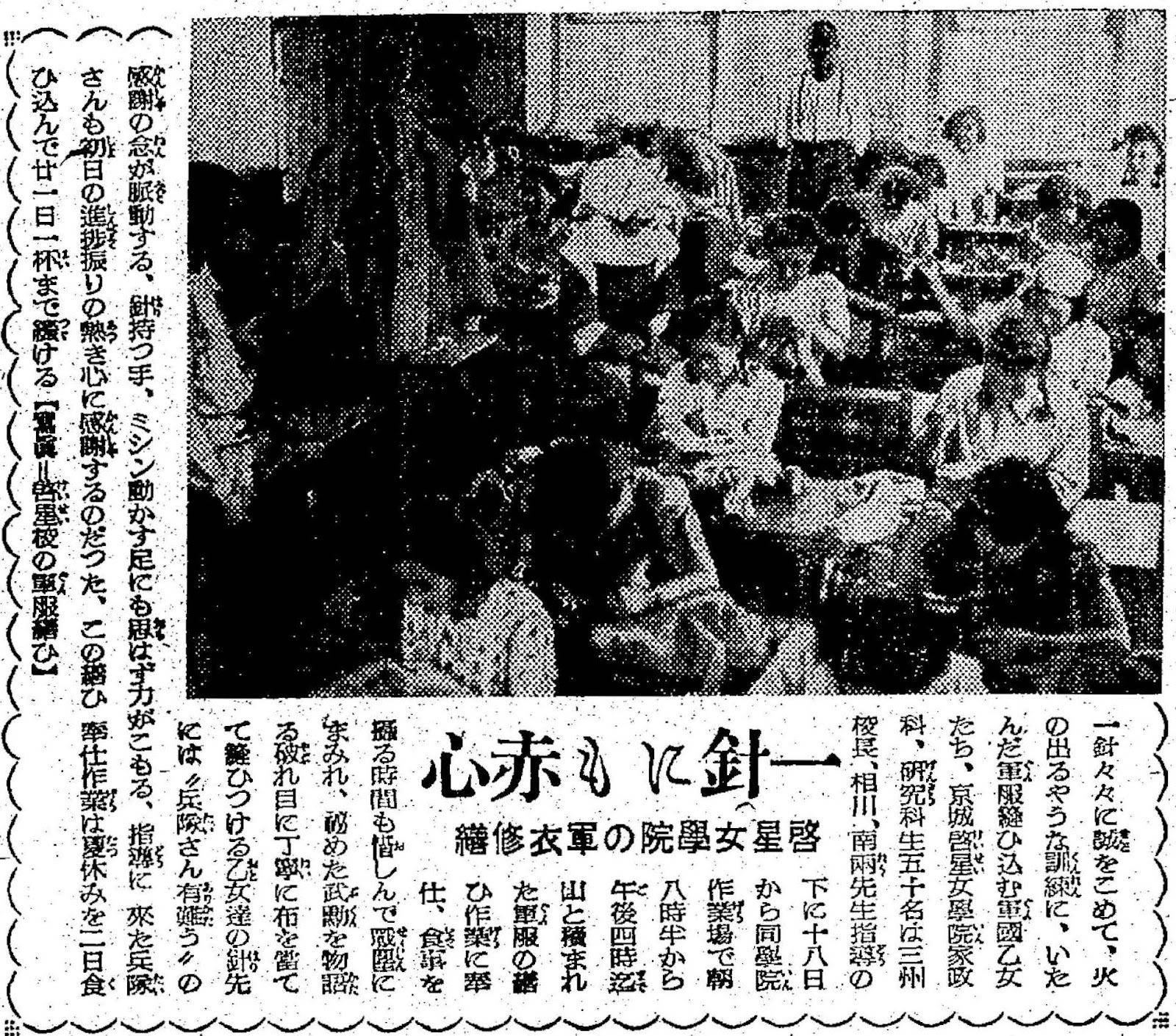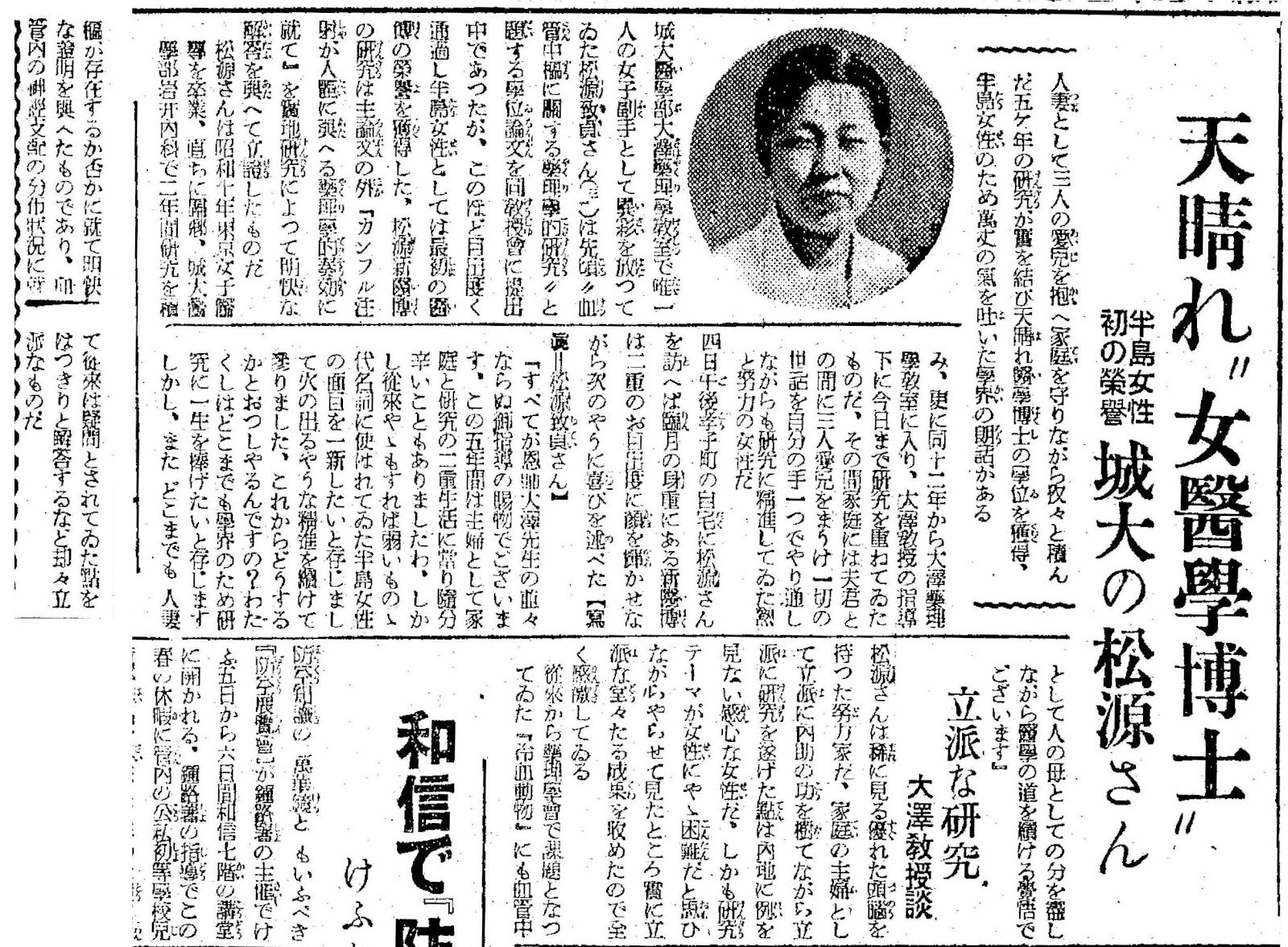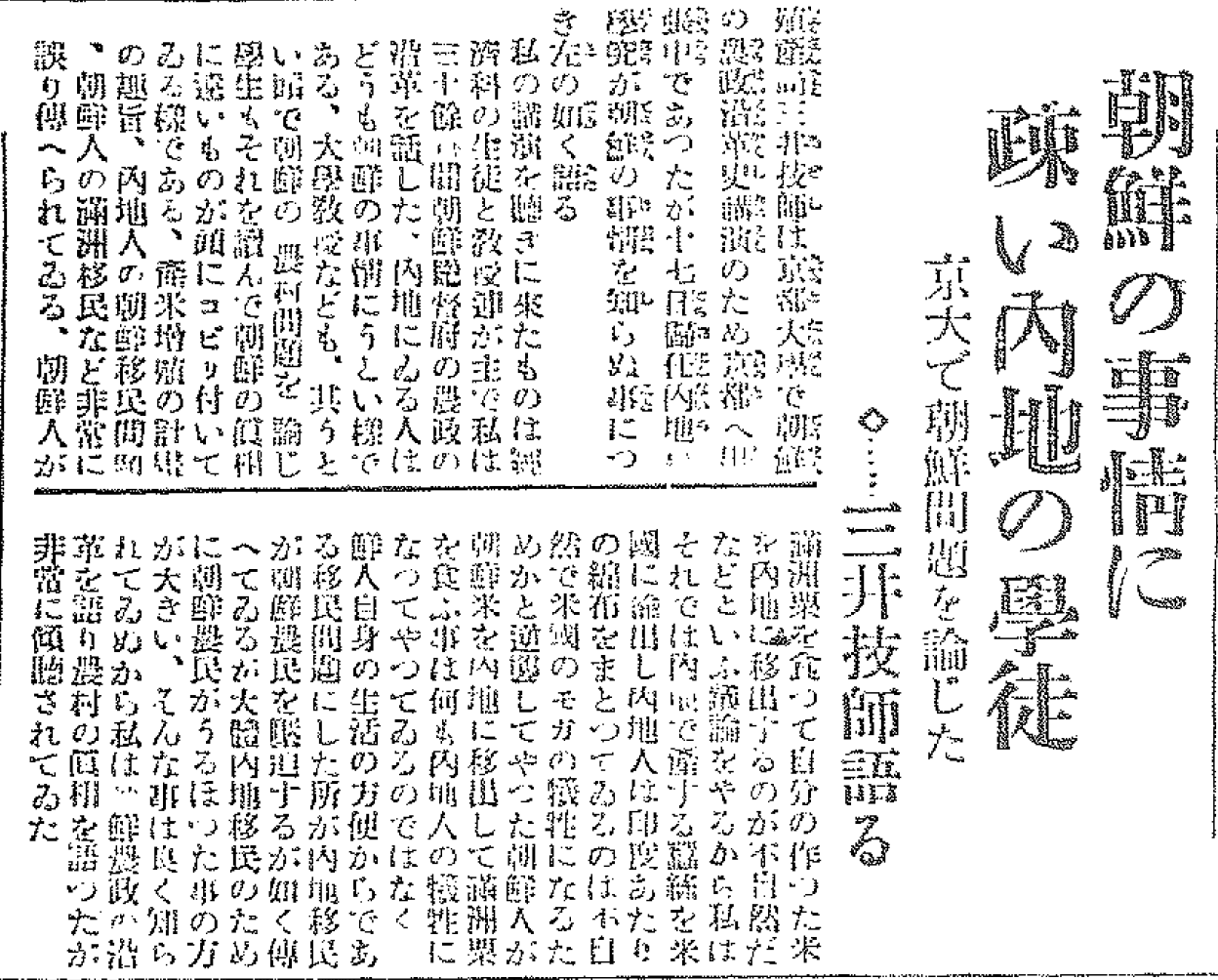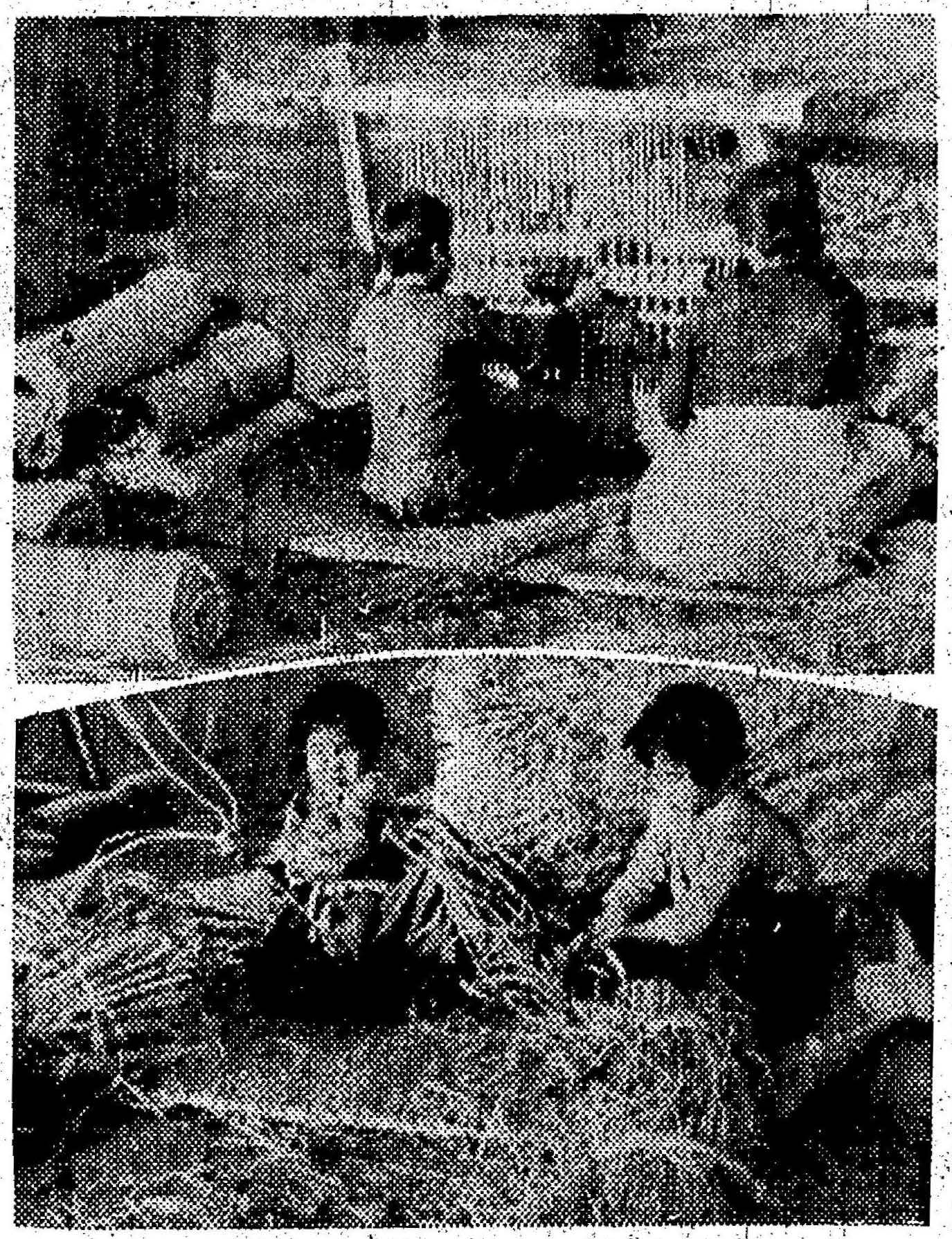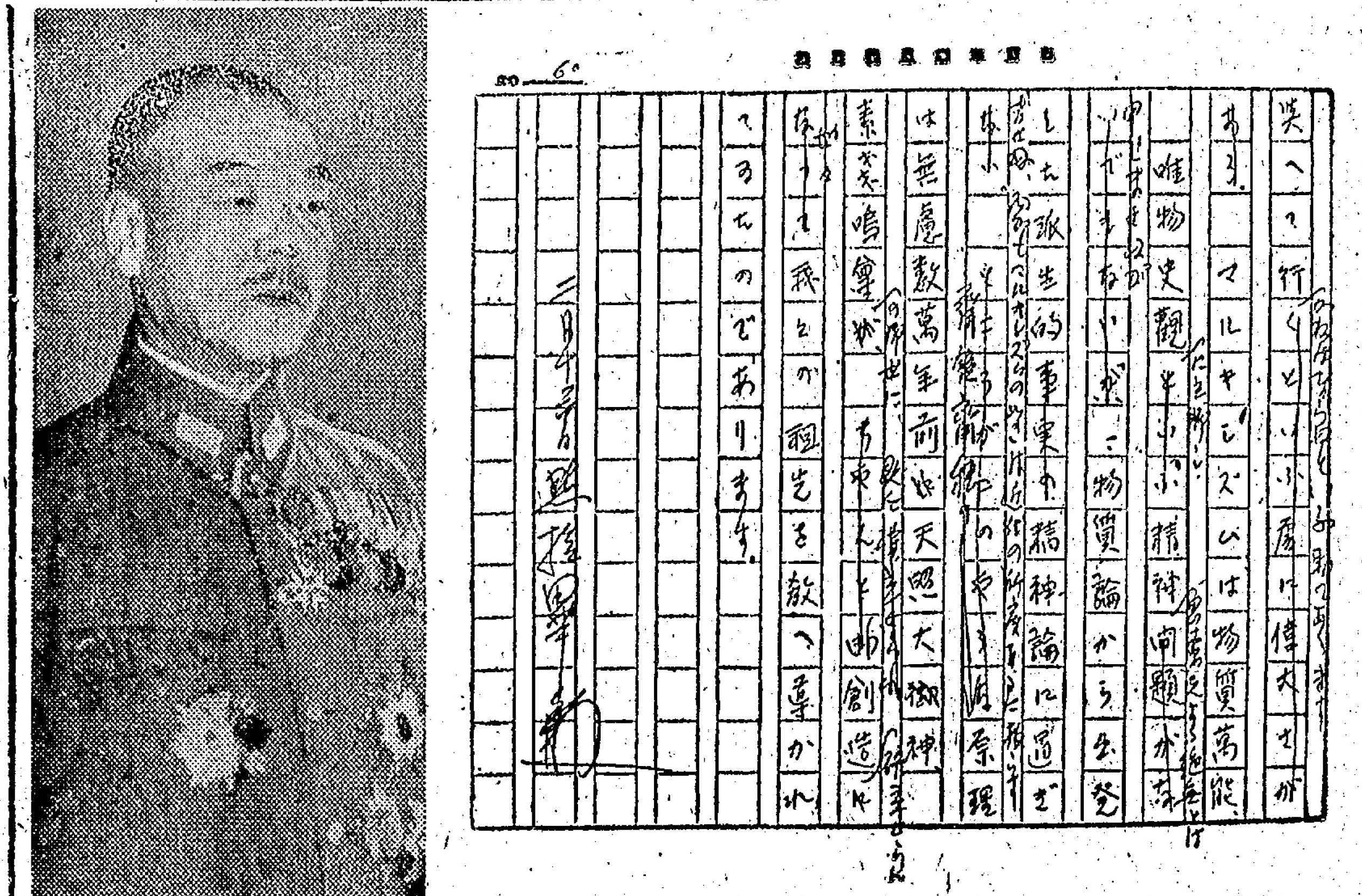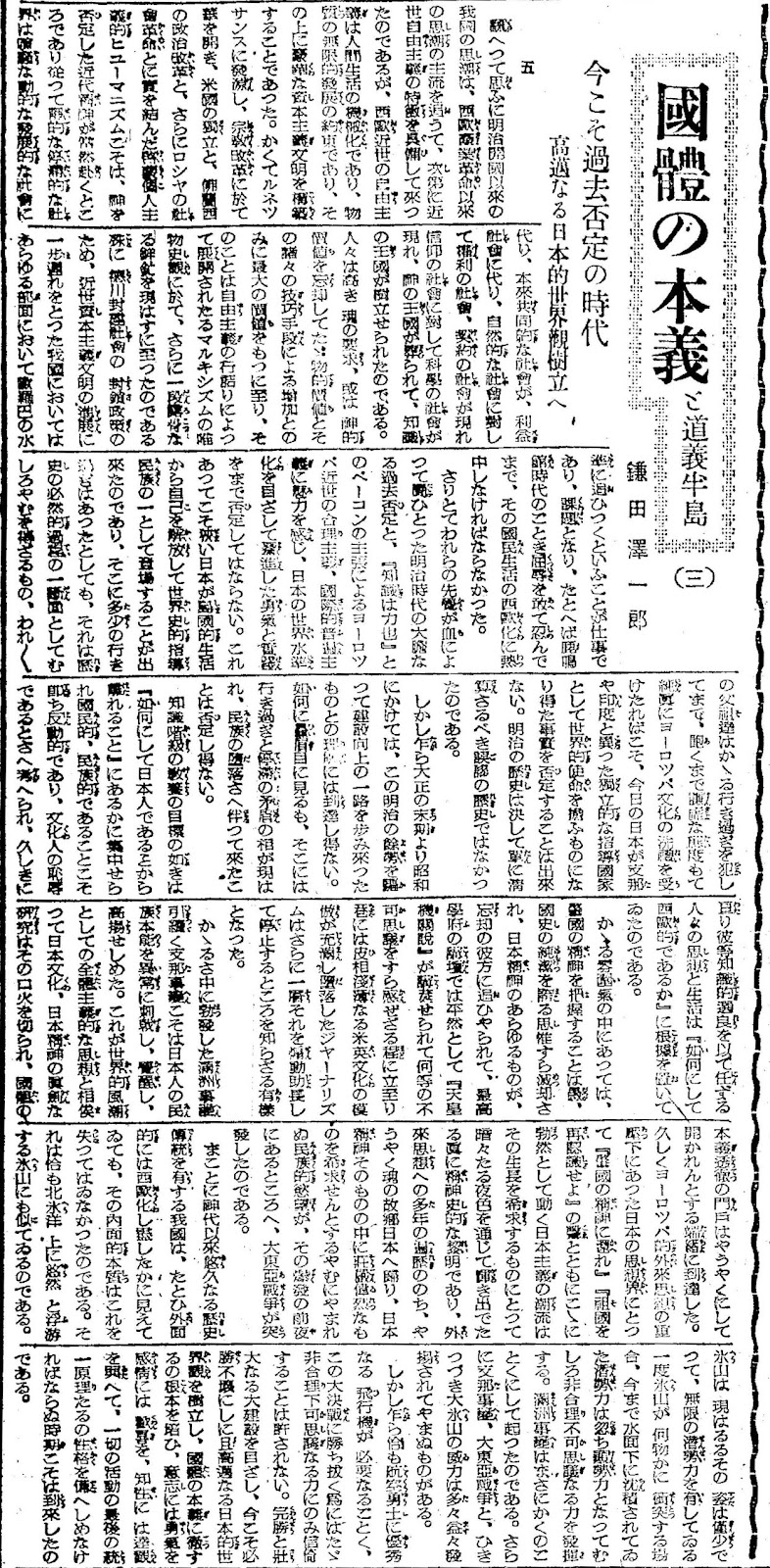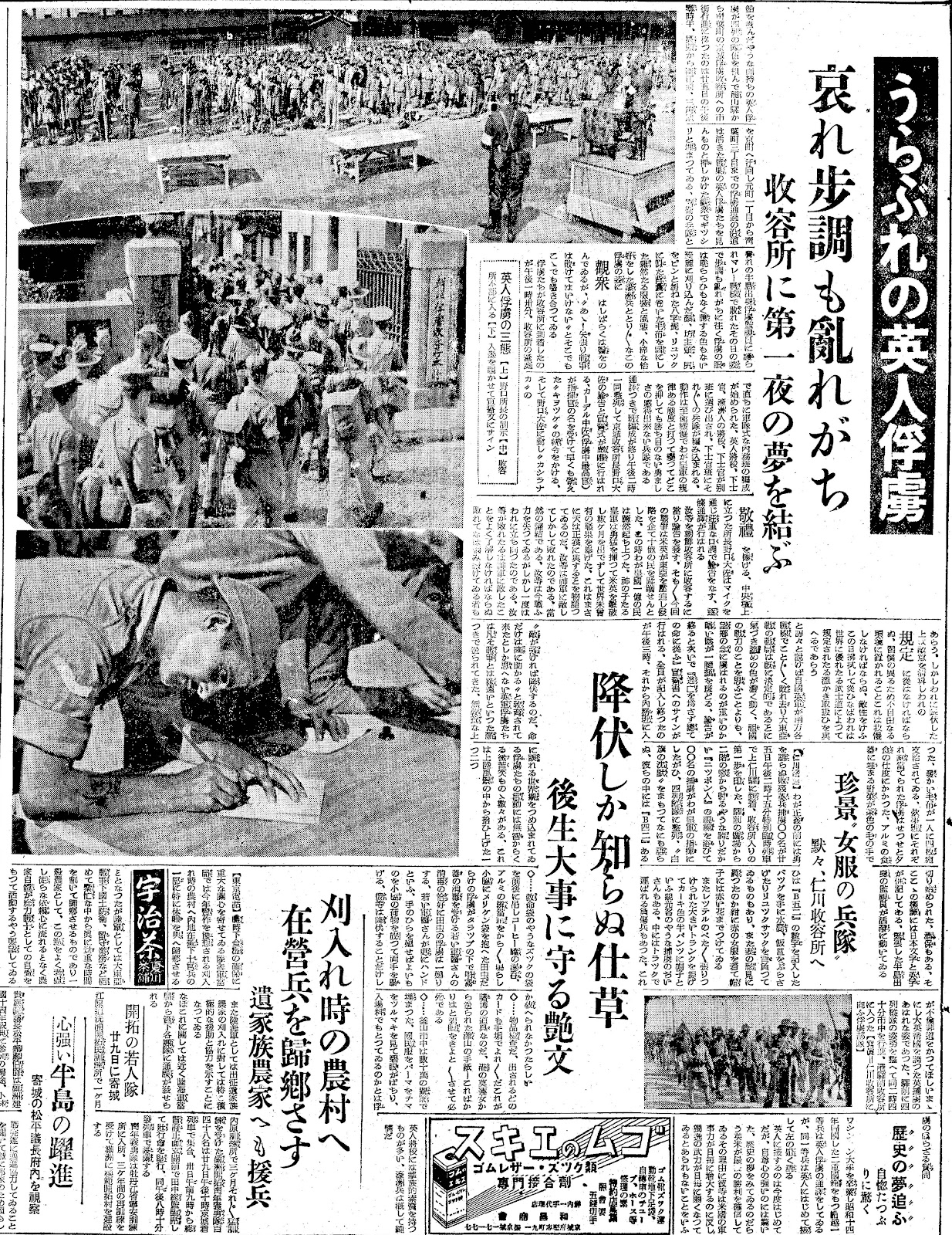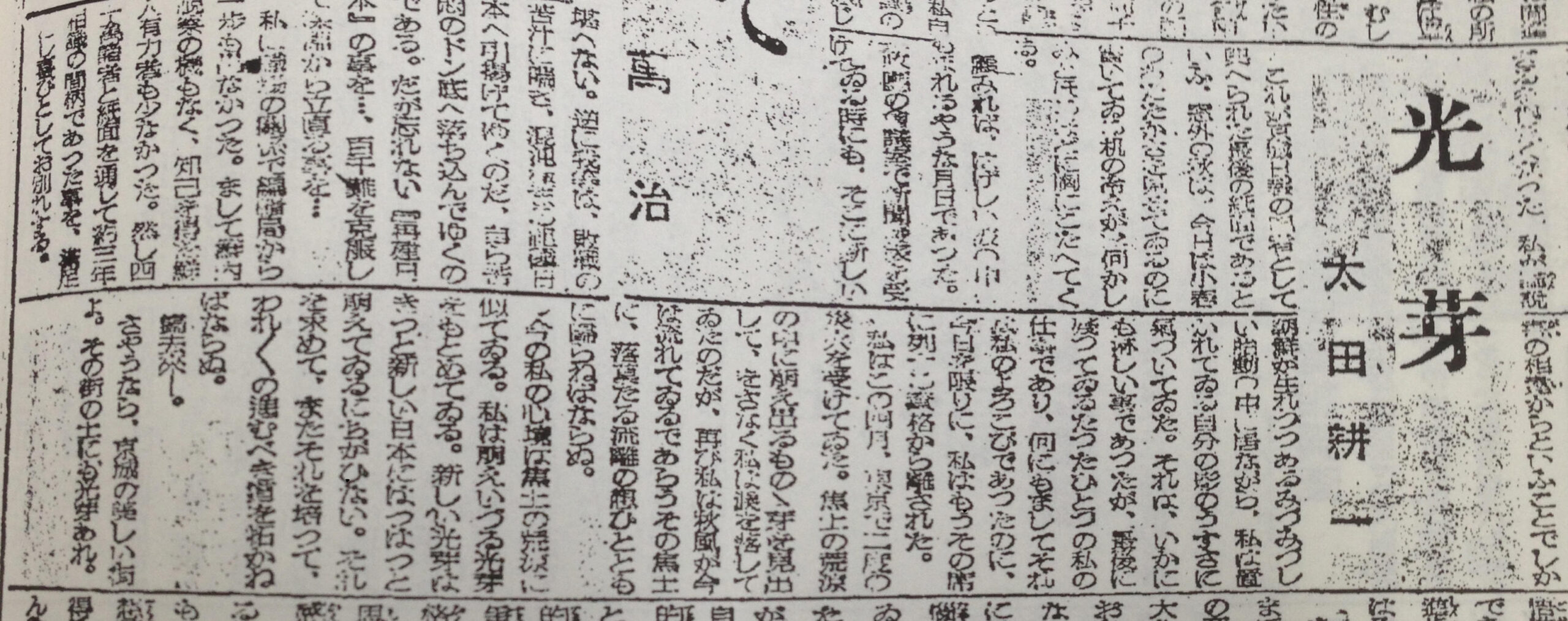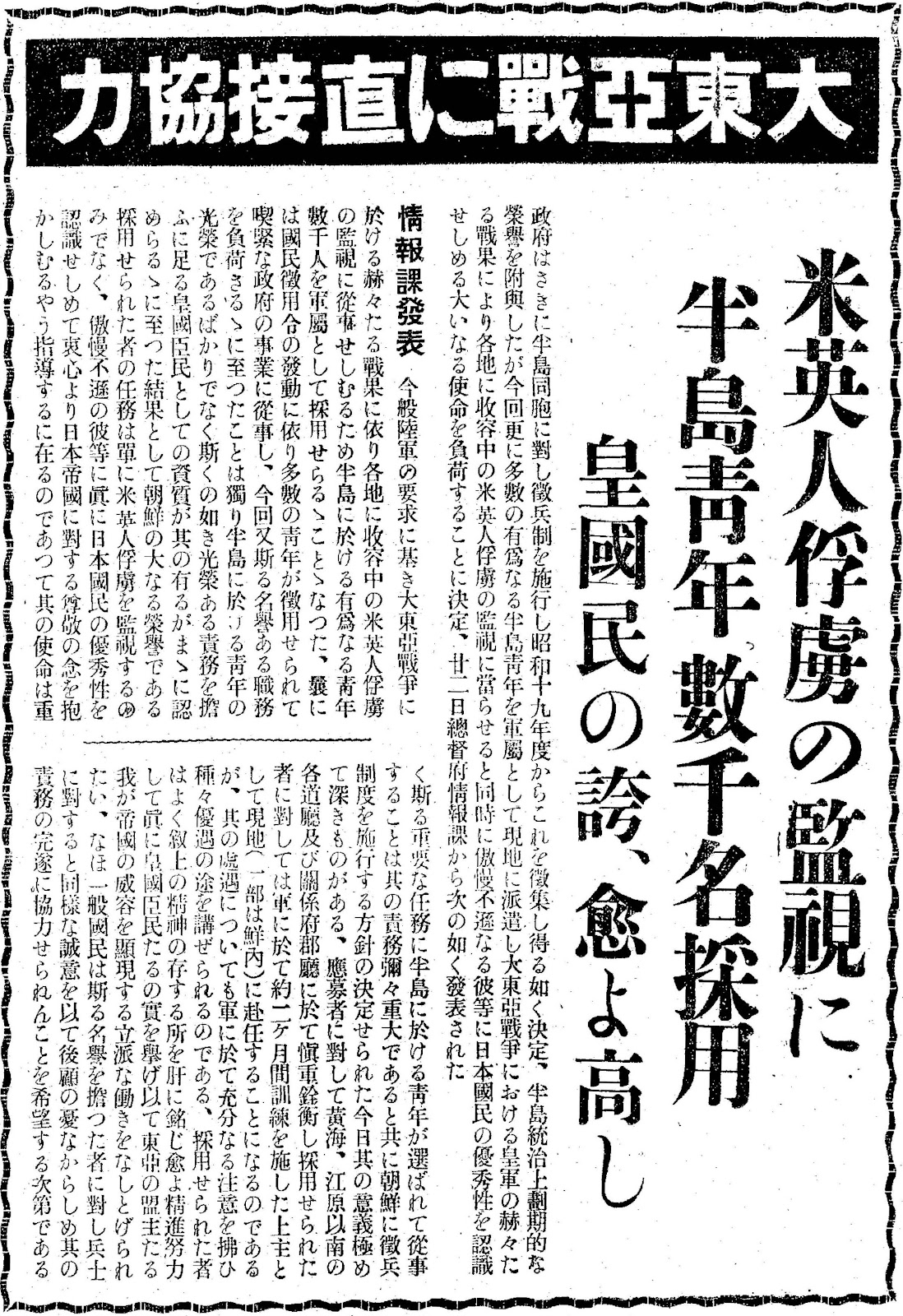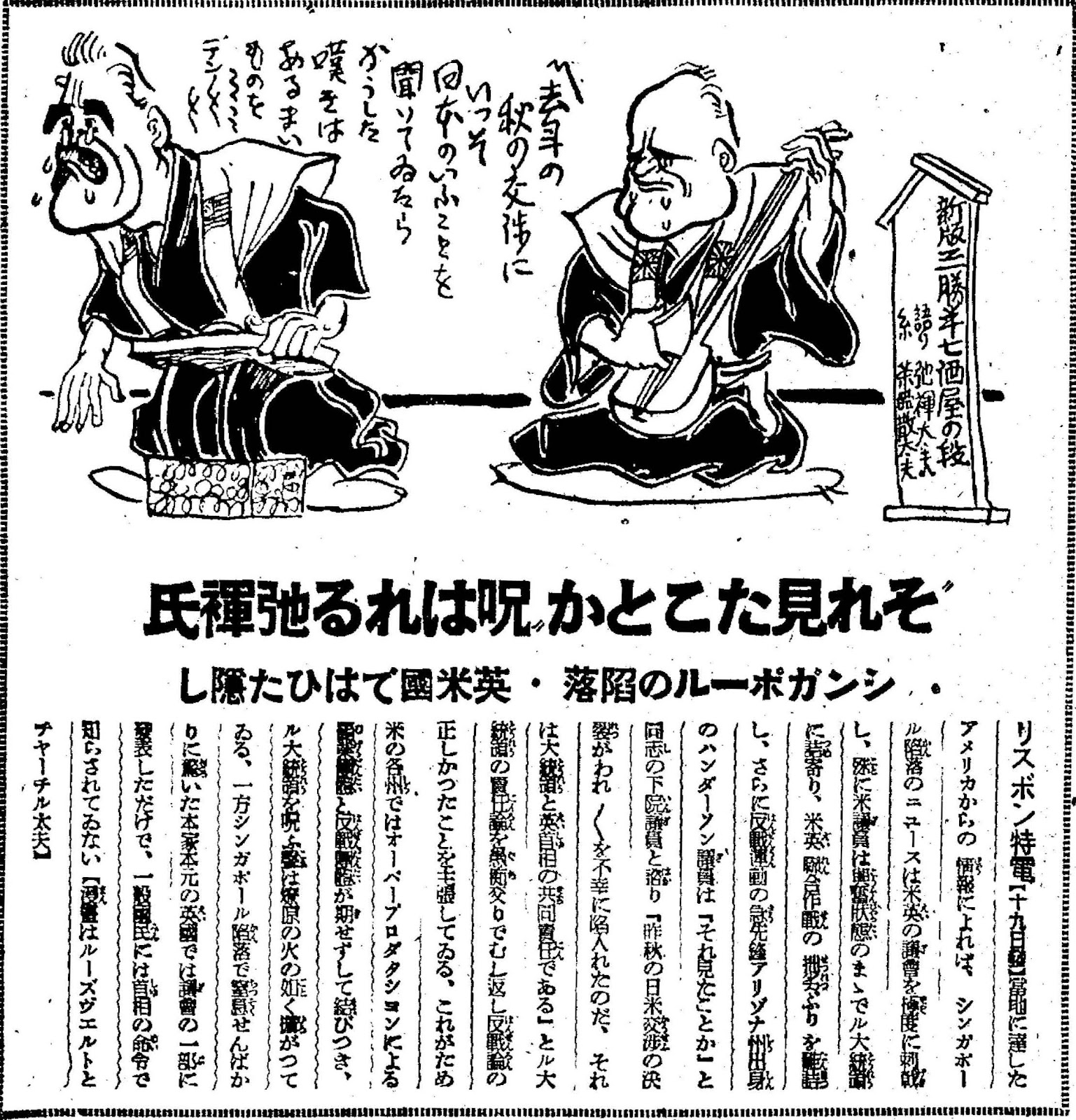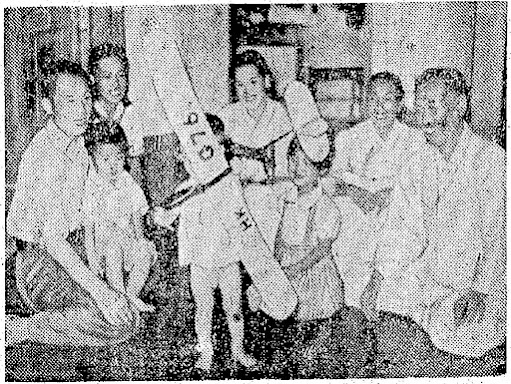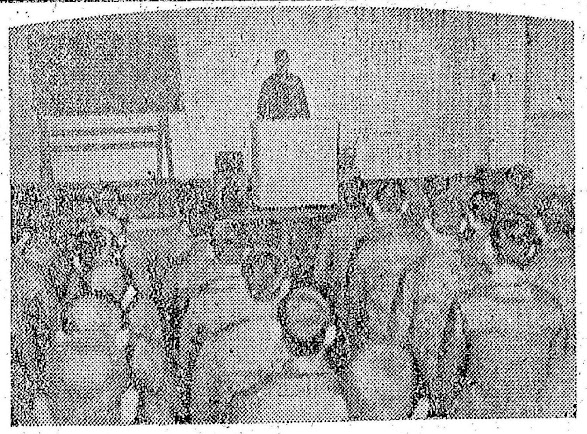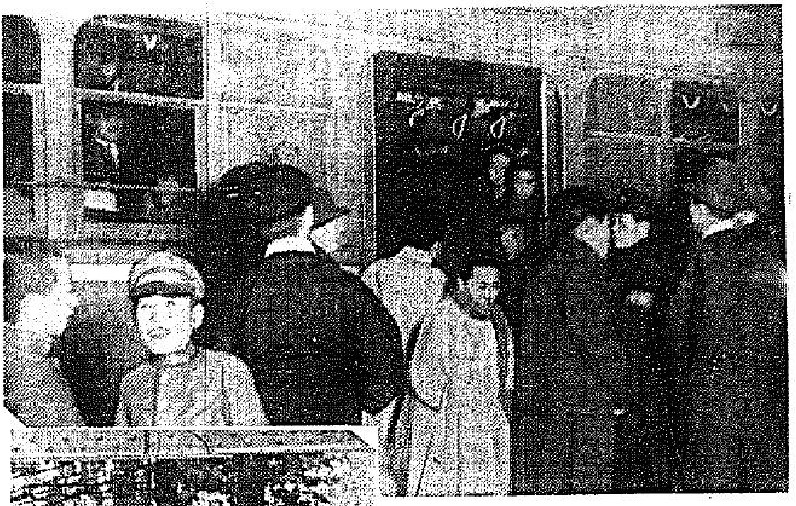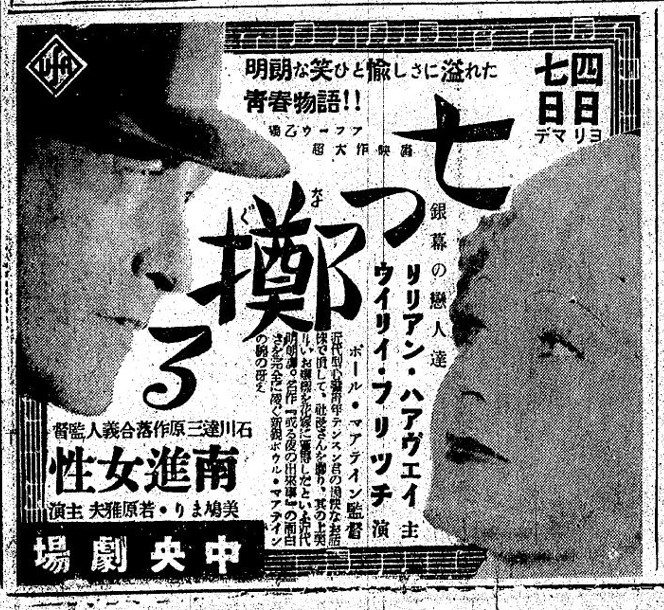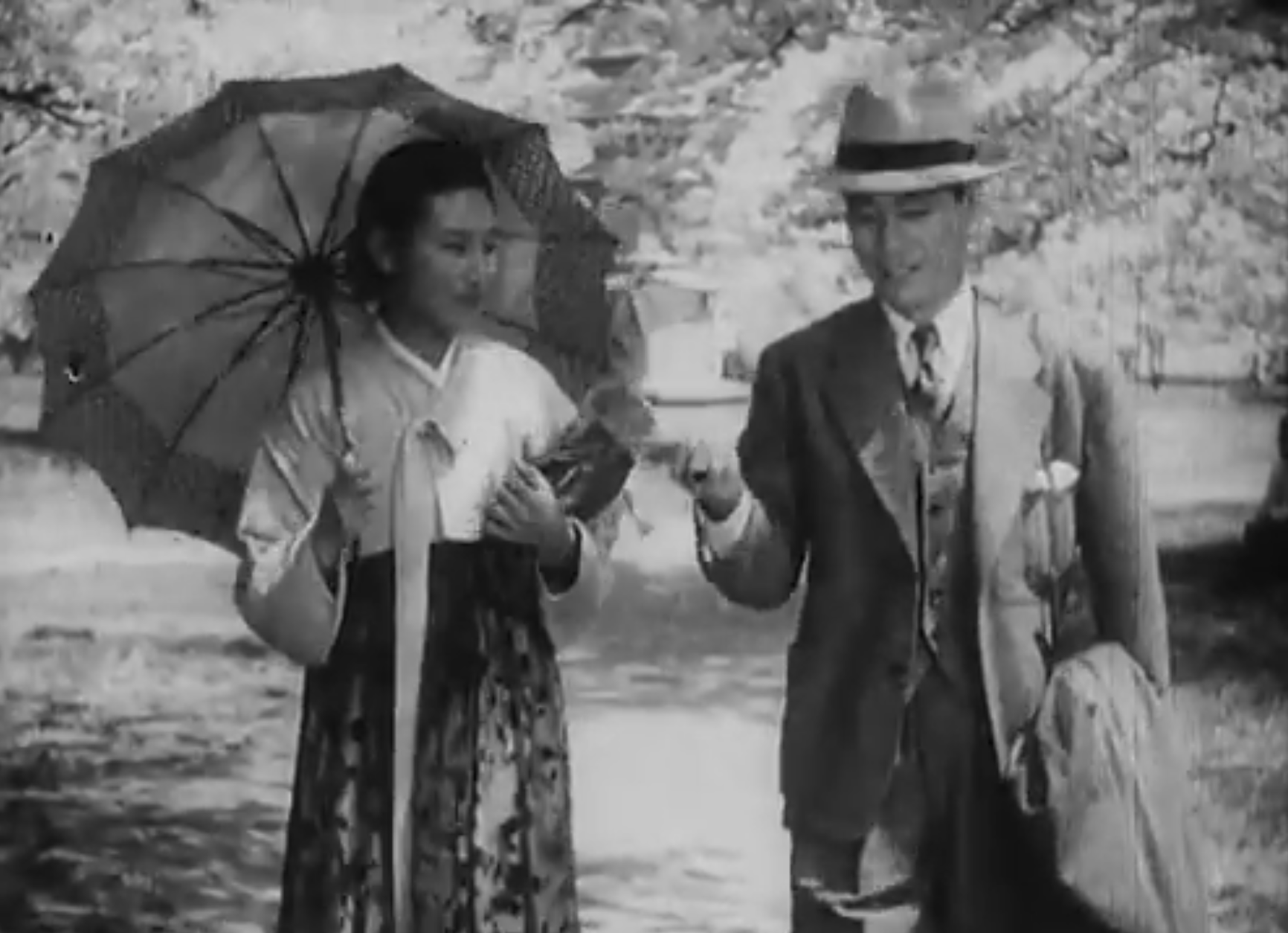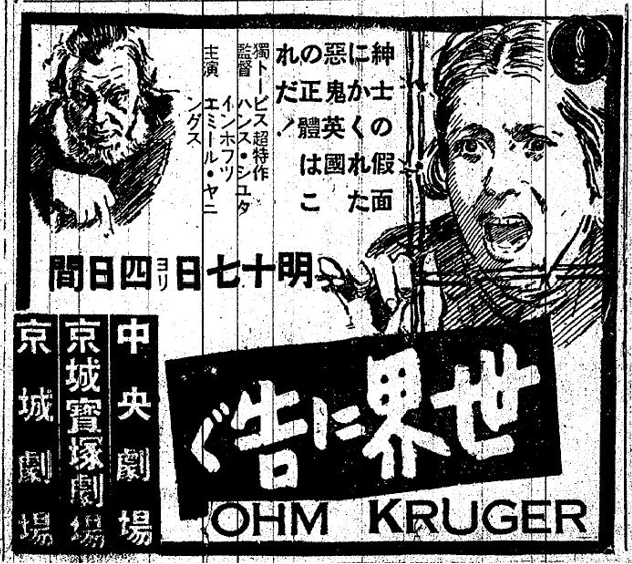
A look into the foreign films showing in Seoul movie theaters in June to Dec. 1943: Ohm Krüger (1941) was heavily promoted to foment anti-British sentiment
2023-12-20
219
1160
This post will be a continuation of my exploration into the kinds of foreign movies that Seoul residents might have watched in 1943, when Imperial Japan was in the middle of a desperate war. To mark exactly 80 years since June to December 1943, I scanned the Keijo Nippo newspapers for any movie ads for foreign films that were showing at movie theaters in Seoul for those months. I identified the movies based on the Japanese titles as well as clues left in the ads themselves, such as the plot lines and the names of the directors and actors. As you can see, in this period, there were 12 foreign films that were screened in Seoul: 6 German films, 4 Italian films, and 2 French films:
- June 1943: Ballerine (Italy, 1936)
- July 1943: Kameraden auf See (Germany, 1938), Andalusische Nächte (Germany, 1938), L’Antenato (Italy, 1936)
- August 1943: None
- September 1943: Tango Notturno (Germany, 1937), Varieté (Germany, 1935)
- October 1943: Ohm Krüger (Germany, 1941), Luciano Serra pilota (Italy, 1938)
- November 1943: Gli ultimi giorni di Pompei (Italy, 1926)
- December 1943: Maria Chapdelaine (France, 1934), Conflit (France, 1938), Wunschkonzert (Germany, 1940)
Some of these movies are available to watch online in clips or, in some cases, in their entirety on Youtube or Internet Archive, so I will share links below along with the movie ads. I linked to resources on Wikipedia wherever I could.
Ballerine (Italy, 1936) was a drama starring Silviana Jachino (pictured in this ad) and Antonio Centa, whose name is printed here. This film was made into a double feature, where you had to sit in for the domestic Imperial Japanese film (秀子の車掌さん) if you wanted to watch the foreign film. The film only showed from June 18th to the 20th.
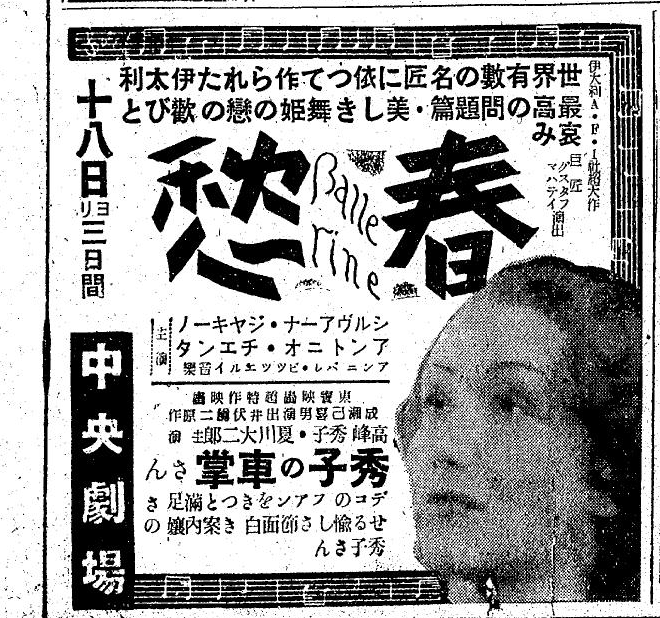
Kameraden auf See (Germany, 1938) was a war film starring Theodor Loos and Julius Brandt (pictured in this ad) and Carola Höhn, whose name is printed here. This film was made into a double feature, where you had to sit in for the domestic Imperial Japanese film (わが家の春) if you wanted to watch the foreign film. The film only showed from July 1st to the 4th.
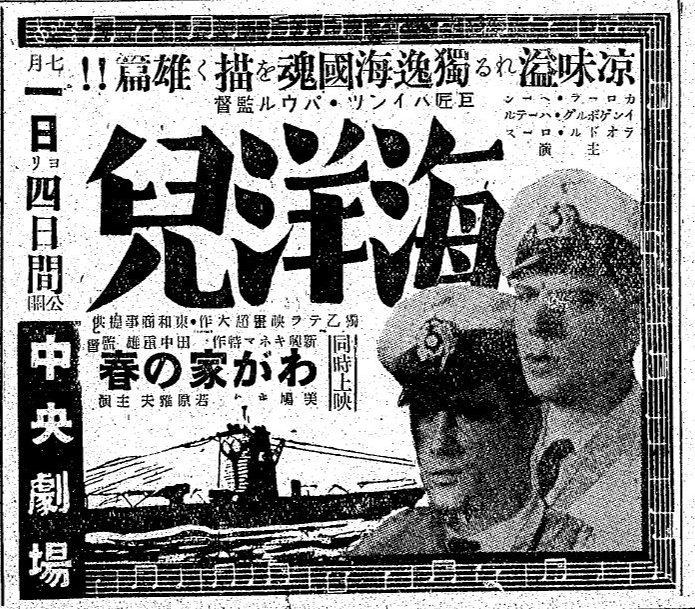
Andalusische Nächte (Germany, 1938) was a musical film directed by Herbert Maisch and starring Imperio Argentina, who is pictured in the ad. The film only showed from July 1st to the 4th.
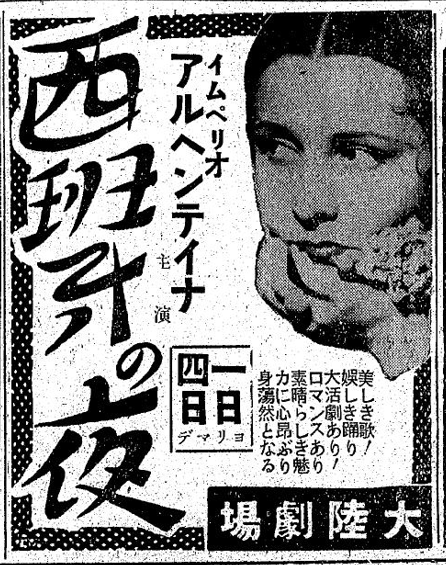
L’Antenato (Italy, 1936) was a 1936 comedy starring Antonio Gandusio and Paola Barbara, who are depicted in this ad. This film was also showing in Seoul in April 1943. This film resumed screening on July 10th.
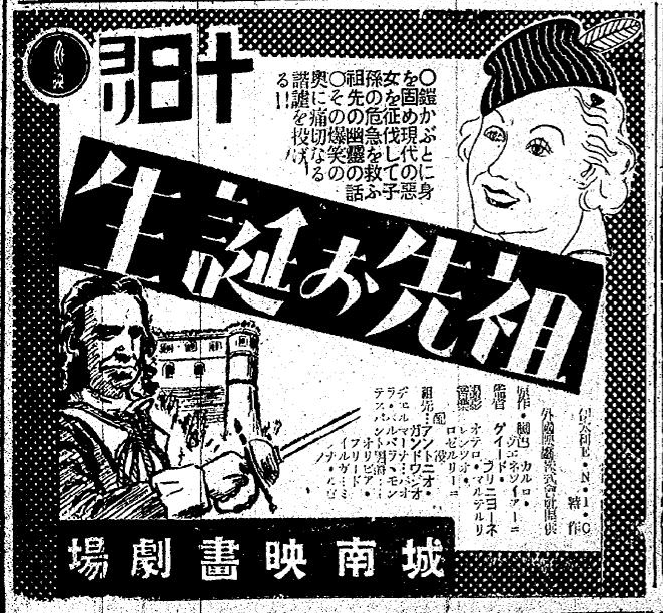
Tango Notturno (Germany, 1937) was a drama film directed by Fritz Kirchhoff and starring Pola Negri who is pictured in this ad. This film only screened on September 6th and 7th. An excerpt of this film is available on Youtube here.
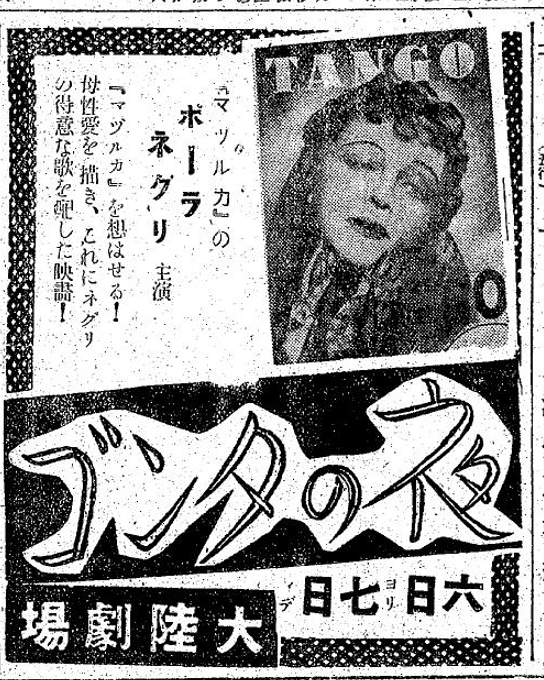
Varieté (Germany, 1935) was a French-German drama film directed by Nicolas Farkas and starring Annabella who is pictured in this ad. This film screened from September 27th to the 30th.
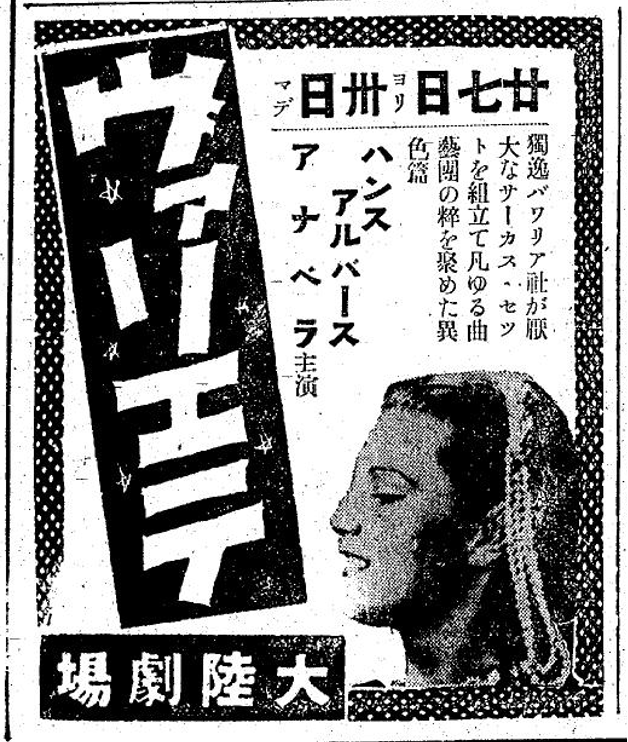
Ohm Krüger (Germany, 1941) was a 1941 German biographical film directed by Hans Steinhoff and starring Emil Jannings, Lucie Höflich, and Werner Hinz. It was one of a series of major propaganda films produced in Nazi Germany attacking the United Kingdom. The film depicts the life of the South African politician Paul Kruger and his eventual defeat by the British during the Boer War. The ads are filled with very intense anti-British and anti-American propaganda messaging like, “This is the true face of Anglo-Saxon brutality!” “Now is the time to gaze upon the bestial British atrocities that will remain in world history!” “Gaze upon the unparalleled atrocities of the brutal U.S. and Britain!” This film was heavily promoted with a whopping six ads in one month, showing from October 14th to the 20th. The full movie is available on YouTube here.
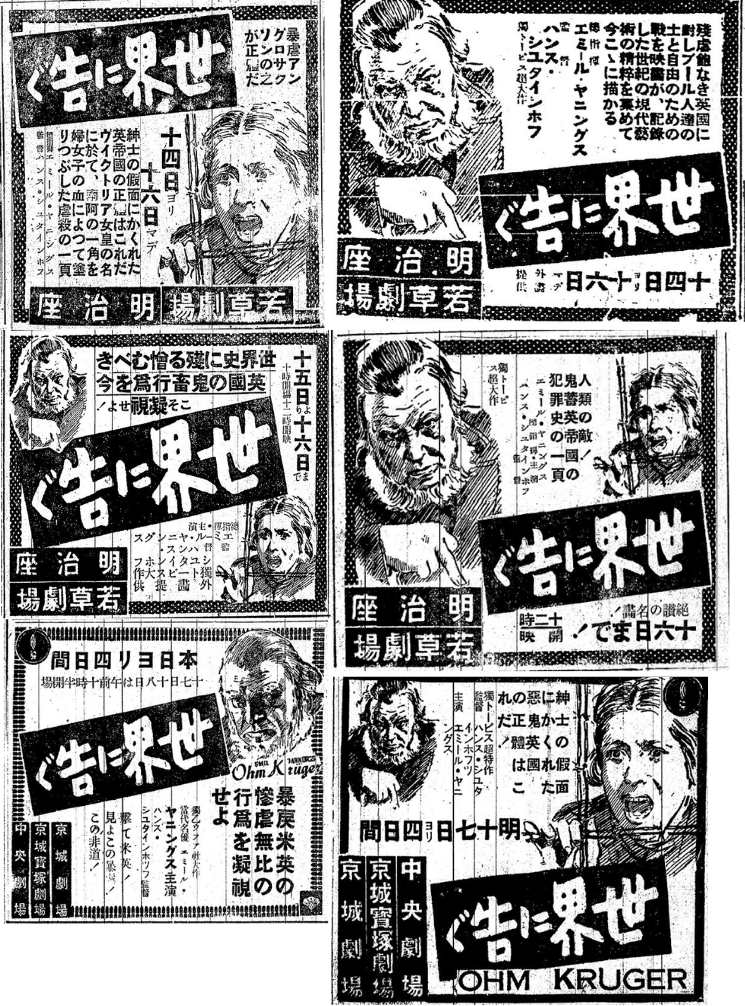
Luciano Serra pilota (Italy, 1938) was a war drama film directed by Goffredo Alessandrini and starring Amedeo Nazzari and Roberto Villa, whose names are printed here. The ad incorrectly states that Vittorio Mussolini was the director. This film was made into a double feature, where you had to sit in for the domestic Imperial Japanese film if you wanted to watch the foreign film. The film only showed from July 1st to the 4th. The full movie is available on YouTube here.
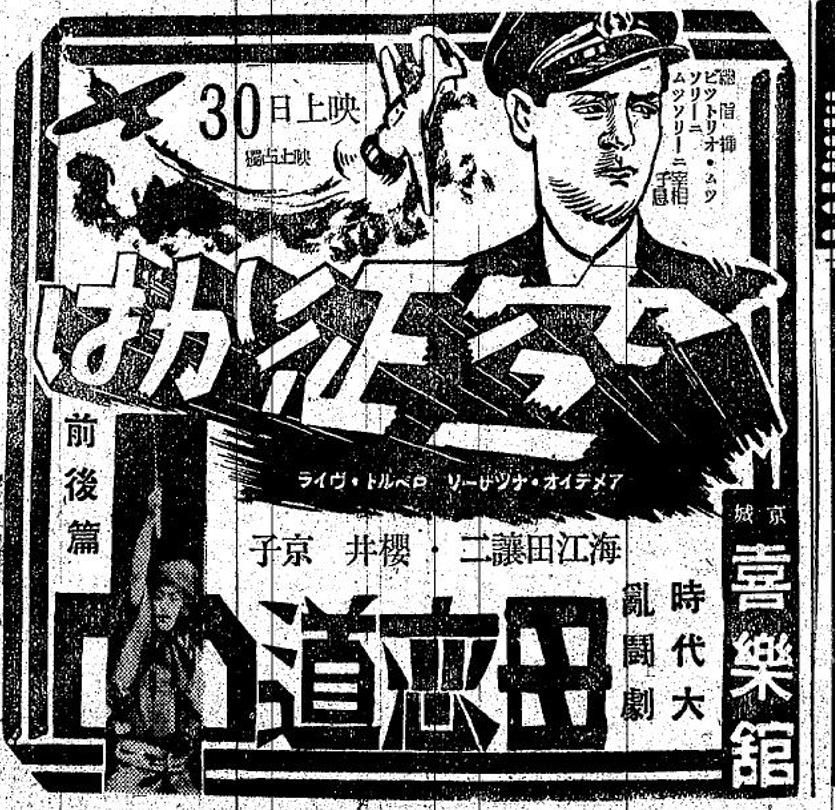
Gli ultimi giorni di Pompei (Italy, 1926) was a historical silent drama film directed by Carmine Gallone and Amleto Palermi and starring Victor Varconi and María Corda, whose names are printed on this ad. This film was made into a double feature, where you had to sit in for the domestic Imperial Japanese film (快闘・富士の男伊達) if you wanted to watch the foreign film. The film screened from November 12th. A very brief excerpt of this film is available on YouTube here.
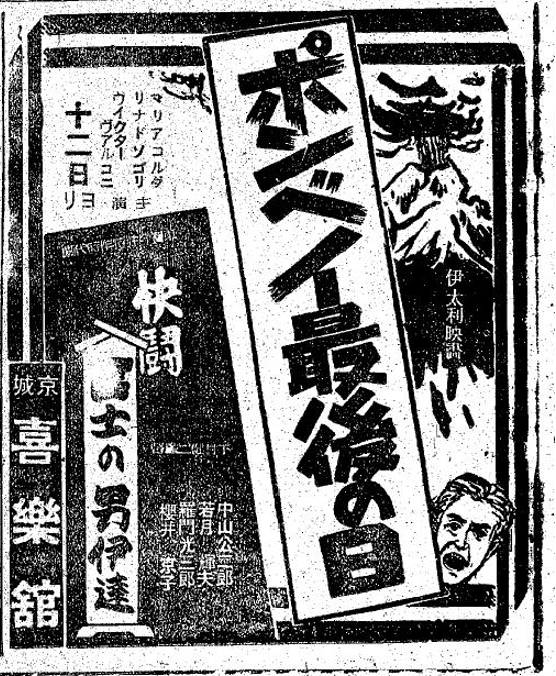
Maria Chapdelaine (France, 1934) was a drama film directed by Julien Duvivier and starring Madeleine Renaud and Jean Gabin, whose names are printed in the ad. This film was made into a double feature, where you had to sit in for the domestic Imperial Japanese film (島は夕やけ) if you wanted to watch the foreign film. The film screened from December 9th to the 11th. An excerpt of this film is available on Elephant Cinema Quebec here.
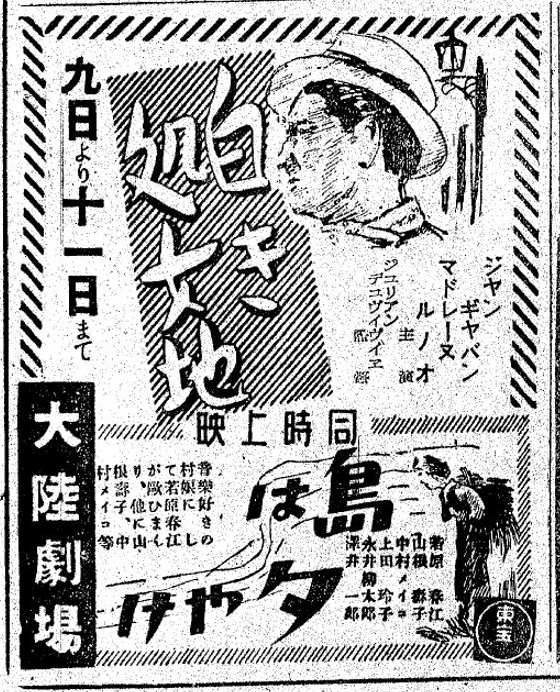
Conflit (France, 1938) was a drama film starring Corinne Luchaire, Annie Ducaux, Marguerite and Raymond Rouleau whose names are printed on the ads. It screened from December 18th to the 21th. A long excerpt of this film is available on YouTube here.
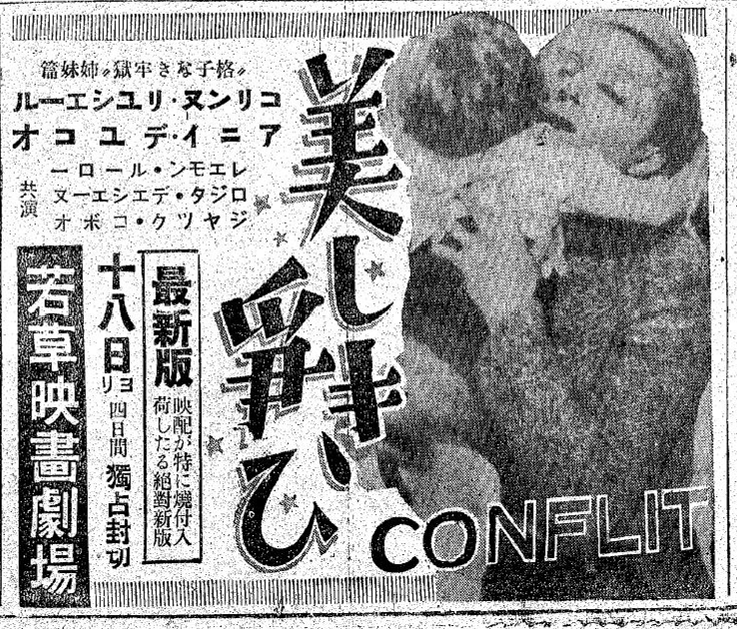
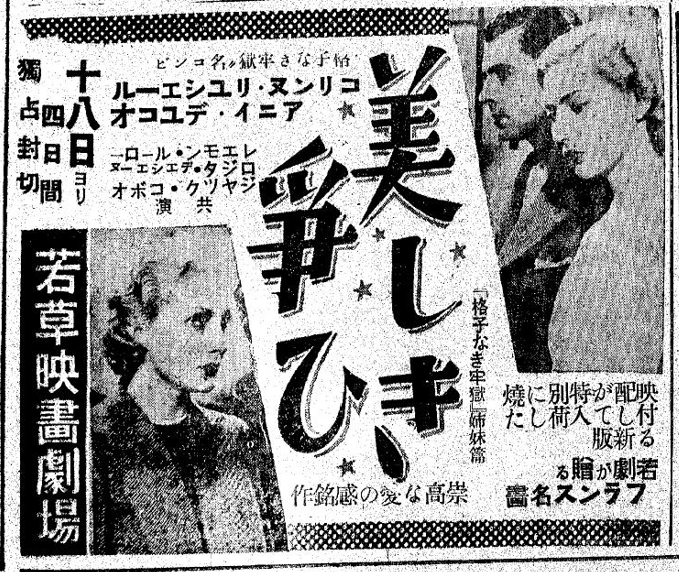
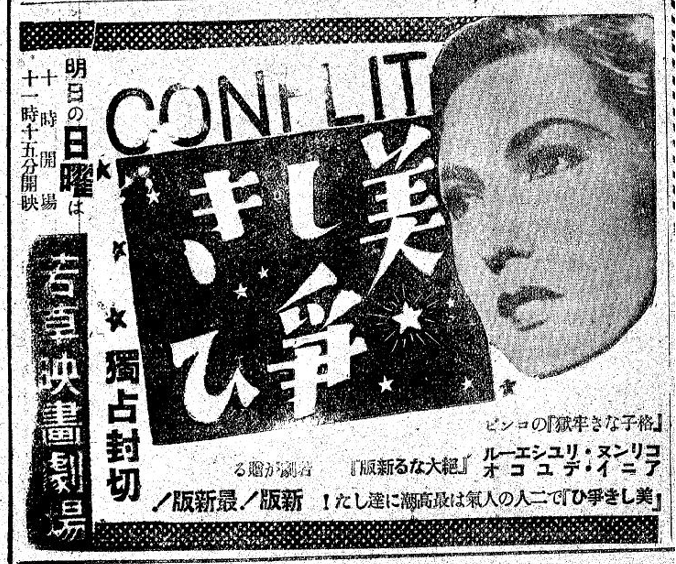
Wunschkonzert (1940) was a German drama propaganda film starring Ilse Werner, who is prominently featured on the ads. This movie was heavily promoted in Keijo Nippo, and it also screened earlier in January and March of 1943. The German brochure for this movie is available on the Internet Archive here. The full movie (no subtitles) is available on the Internet Archive here. A clip of one of the songs is available on YouTube here. It screened from December 18th to the 21st.
